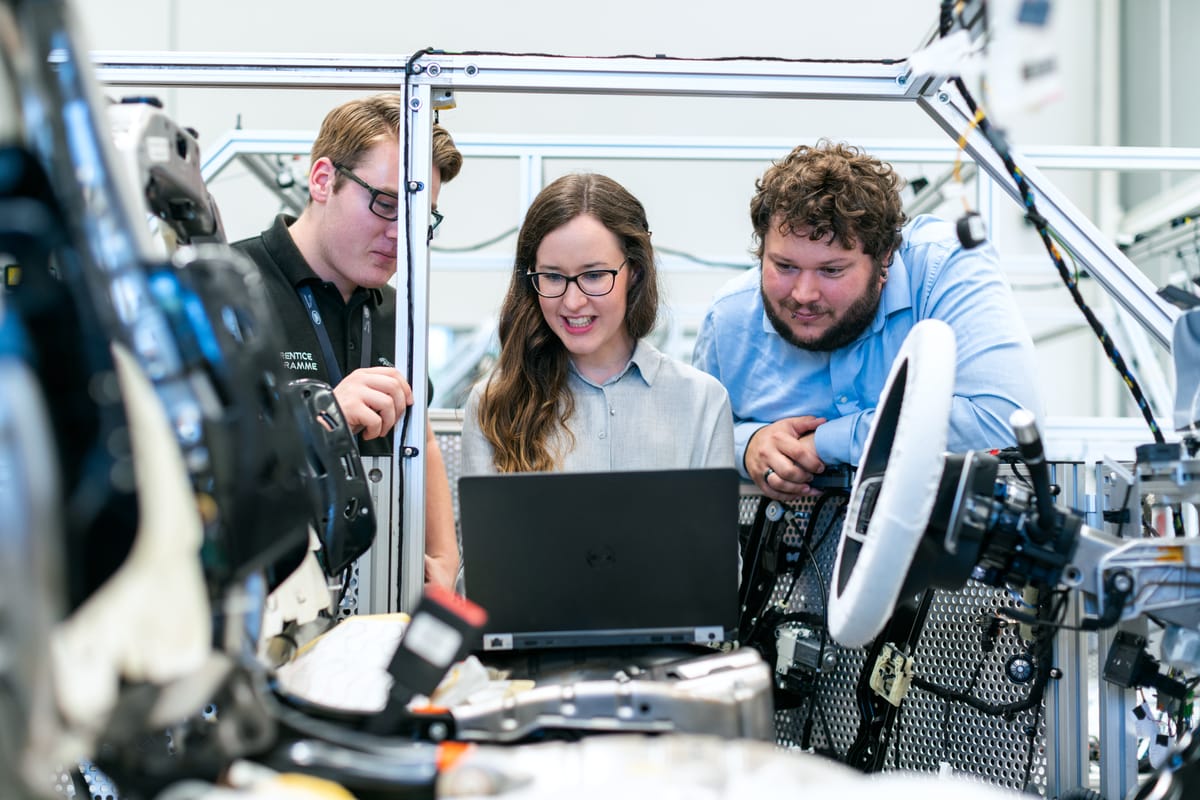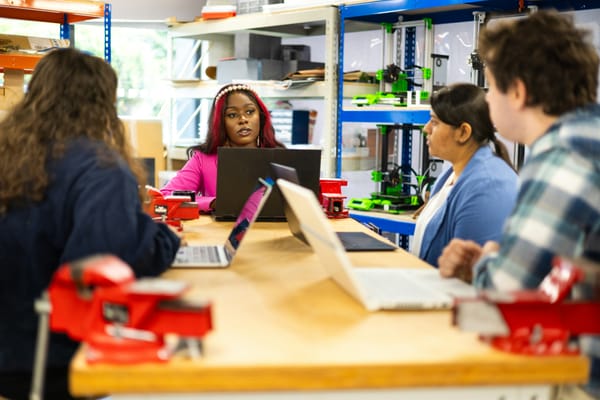How can universities drive an innovation-led recovery post-covid?
Innovation leads to new discoveries, products and services. But how are universities supporting in-house innovation post-covid?

Game-changing innovations arise when a university collaborates with a third-party partner on a research and/or knowledge exchange project.
However, many industry and community projects within higher education came to a halt during the pandemic. Face-to-face correspondence was no longer an option and covid uncertainty caused many project timelines to blur.
So how did UK universities upkeep their innovative partnerships and projects amid the pandemic and how are they supporting them now?
Through crisis to recovery is a recent report that seeks answers to such questions.
Throughout the report, University of Cambridge Director of the University Commercialisation and Innovation (UCI) Policy Evidence Unit Tomas Coates Ulrichsen and UCI Research Associate Leonard Kelleher investigate the ongoing effects of the COVID-19 pandemic on the ability of universities to contribute to innovation between August 2020 – July 2021 (otherwise known as the 'Ongoing Crisis' period).
As Ulrichsen states in the Executive Summary of his co-authored report:
''The COVID-19 pandemic has caused a hugely disruptive and sudden shock to societies and economies around the world. Its evolution has proved to be highly uncertain. In the UK, following the first wave and national lockdown, additional waves of COVID infection emerged along with national lockdowns attempting to control the spread of the virus and its devastating effects on health and health systems. The ongoing disruption will undoubtedly have had continued effects on universities.''
Key Aims
The report tackles four key aims to investigate the ongoing effects on university innovation post-pandemic.
Aim 1: To explore the scale and nature of the effects of the ongoing crisis on the innovation-focused activities of universities and their ability to initiate and deliver them.
Aim 2: To investigate how universities adapted and responded to the challenges of the pandemic to continue to support innovation.
Aim 3: To explore the drivers and factors shaping universities’ strategic agility and how these are influencing their strategic priorities for contributing to the recovery.
Aim 4: To explore the effectiveness of policy interventions made during the pandemic and capture the views of universities on what further policy interventions could be made to enable universities to more fully contribute to an innovation-led recovery.
Key Findings
Many key findings arise from Ulrichsen and Kelleher's recent investigations. We have featured a handful straight from the report below, yet you can click here to discover more!
📌Funding programmes that enabled flexibility and decentralised decision-making at the university or department level were regarded as most effective in enabling universities and academics to rapidly respond, adapt, and reconfigure to overcome major challenges thrown up by the pandemic, drive research translation, and purse new opportunities.
📌Universities called for higher levels of flexible funding for research and knowledge exchange (KE) to enable them to become more responsive to long-term opportunities to both create breakthroughs that will drive technologies and innovations, and leverage their existing knowledge bases to help their partners innovate.
📌Respondents called for additional support to build capabilities to collaborate and innovate within the innovation system, including within the university (recognising the challenges of recruiting and retaining highly skilled professionals to support KE and commercialisation), and to build entrepreneurial and workforce skills within the wider economy.
📌Enriching student experience through entrepreneurship/KE activities, and working to deliver on specific societal missions and innovation challenges are also seen as offering significant opportunities.
Today's new report examines the ongoing effects of the #Covid19 pandemic on universities’ #innovation-focused activities and their ability to adapt and respond to drive an innovation-led recovery.
— National Centre for Universities and Business (@NCUBtweets) July 20, 2022
Tomas Coates Ulrichsen takes us through the key findings at this morning's event. pic.twitter.com/2gRYuwNaYN
Will universities drive an innovation-led recovery?
Universities are entrepreneurial hives that buzz with staff and student talent.
Yet when uncertainty hits, institutions feel fragmented and in-house innovation loses traction.
To drive an innovation-led recovery, perhaps UK universities require higher levels of research and knowledge exchange funding to leverage their existing knowledge bases and keep innovation afloat during uncertain times.
As per the report findings, they may also need to enrich the student experience with KE activities and entrepreneurial projects to encourage a lasting trail of graduate innovation.
No one can predict the next wave of uncertainty. Yet we can future-proof higher education institutions across the UK, and the world, by supporting university-led innovation.
As the report authors Ulrichsen and Kelleher note:
''We need to continue to invest through the crisis and into the recovery to enable universities to overcome the many challenges they face in this area and help them adapt and reconfigure to pursue new opportunities to contribute to innovation.
This will give us the greatest chance of positioning them at the heart of the innovation-led recovery and renewal that our country so desperately needs.''
The 'Through crisis to recovery' report was published by the UCI Policy Evidence Unit, Institute for Manufacturing Cambridge (IFM), University of Cambridge and the National Centre for Universities and Business (NCUB). To see the report in full, click here.





